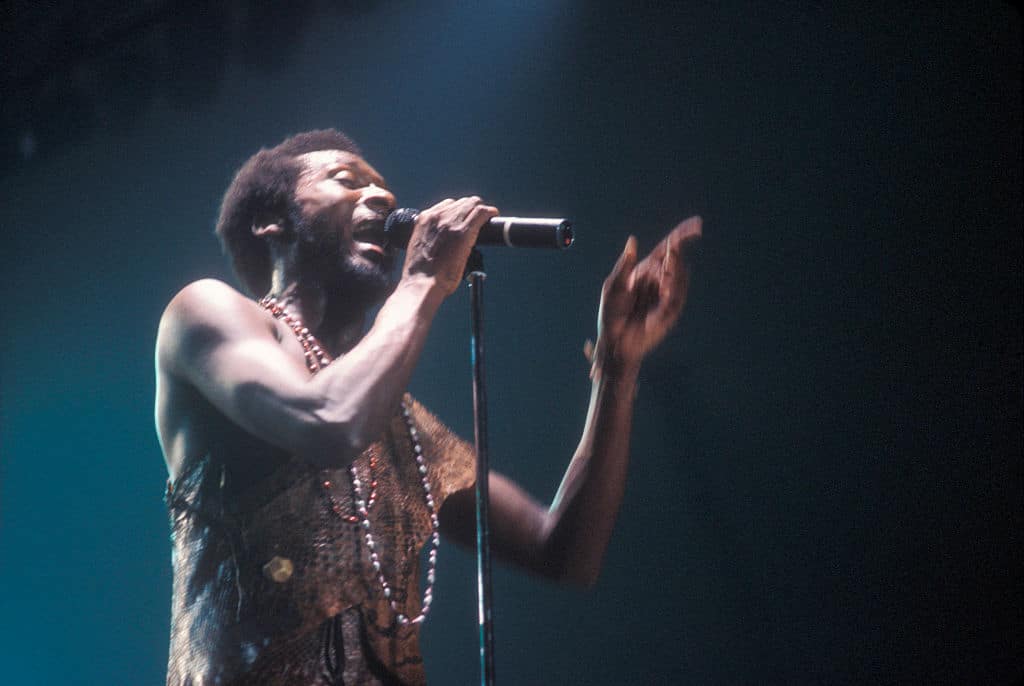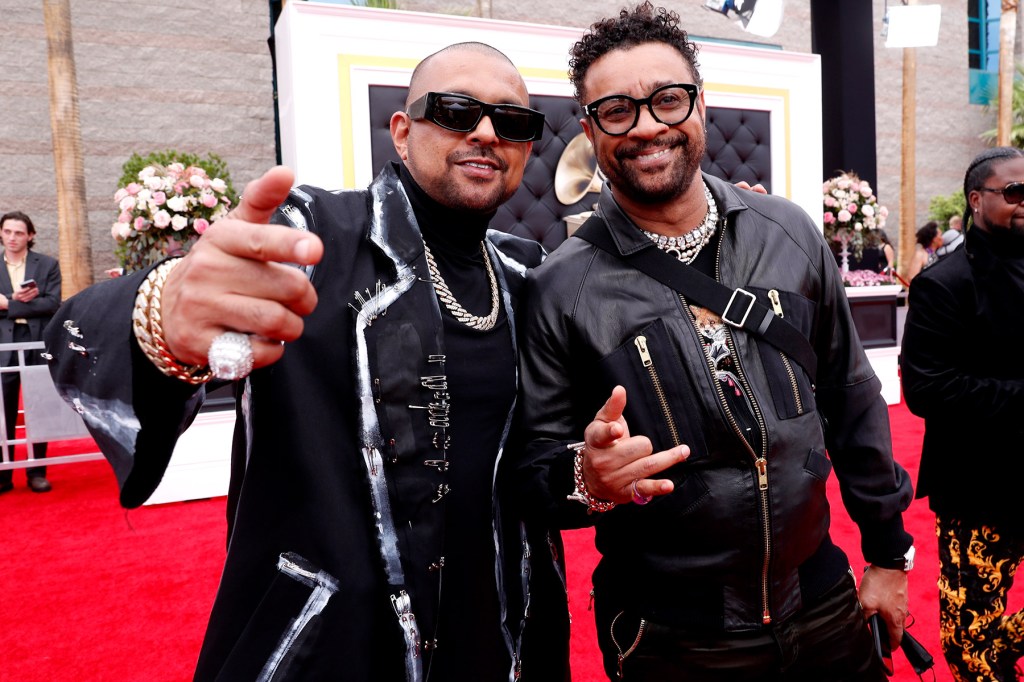Reggae
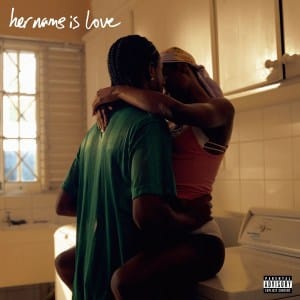
Trending on Billboard
After dominating the year with “Mute” and “Whites,” a late 2024 release that quickly took over the diaspora and received a remix from French Montana, Masicka is closing out 2025 with a tender new EP dedicated to the ladies.
Titled Her Name Is Love, the new EP arrives on Dec. 19 via Def Jam Recordings, following the October release of lead single “Keys,” which recently crossed over one million Spotify streams. For Masicka, “Keys” opens the door to the EP’s celebration of women, desire, closeness and the emotional richness that can be found in relationships. “Baby, your body speaks to me, free to me/ She got the keys to my heart,” he croons over the 1Mind & Westen Weiss-produced riddim.
“Her Name Is Love is really me tapping into another dimension of who I am, not stepping away from the grit, but showing that there’s more to the man behind the music,” he exclusively tells Billboard. “The ladies always support my work, and I wanted to create something that speaks directly to them… their stories, their strength, their emotions and the energy they bring to the culture. This EP is about connection, emotion and the different forms love can take.”
Despite waiting until the twelfth month of the year to unleash his new project, Masicka has had a very busy 2025. At August’s Caribbean Music Awards, he won four trophies, including dancehall song of the year (“Hit & Run,” with Shenseea and Di Genius) and reggae song of the year (“Been There Before,” with Romain Virgo). Those new pieces of hardware also complemented his string of buzzy collaborations with artists like Kranium (“Cut the Link”), Mahalia (“Different Type of Love”), Rvssian (“Rich Sex”) and Lila Iké (“Romantic”).
After a banner summer season, Masicka focused on helping his home country rebuild in the wake of this fall’s devastating Hurricane Melissa. His MADE foundation teamed with representatives from Member of Parliament Floyd Green’s office, renowned producer Dunw3ll and Red Stripe to bring food supplies, construction materials, steel and cement to St. Elizabeth.
Masicka made his Def Jam debut in 2023 with Generation of Kings, a 17-song set that reached No. 2 on Reggae Albums. That album, which featured collaborations with the likes of Dexta Daps and Spice, followed two independently released LPs: 2018’s Start from the Grung and 2021’s 438.
“Women always show me love, and this is my way of giving that energy back in a full, meaningful way,” Masicka says. “After the year I’ve had, everything aligned for me to put out a project that celebrates them and shows this refined side of my artistry.”
Check out the official artwork for Masicka’s Her Name Is Love EP below.
Masicka, “her name is Love”
Courtesy
Few names are as synonymous with reggae music as Jimmy Cliff.
The Grammy-winning artist, whose music traversed reggae, ska, rocksteady, soul and rock ‘n’ roll, passed on Monday (Nov. 24), as announced by his wife, Latifah Chambers, in an Instagram post.
“It’s with profound sadness that I share that my husband, Jimmy Cliff, has crossed over due to a seizure followed by pneumonia,” Chambers wrote. “I am thankful for his family, friends, fellow artists and coworkers who have shared his journey with him. To all his fans around the world, please know that your support was his strength throughout his whole career. He really appreciated each and every fan for their love.”
After amassing a handful of local hits in the mid-1960s thanks to his trademark soulful tenor, the Kingston-born star achieved his international breakthrough with his eponymous 1969 LP (released as Wonderful World, Beautiful People in the States in 1970), which included the hits “Wonderful World, Beautiful People” and “Vietnam.” Bob Dylan famously called the latter of the two singles one of the greatest protest songs he’d ever heard. Wonderful World also housed the timeless “Many Rivers to Cross,” an evergreen reflection on navigating the industry that also appeared on the soundtrack for 1972’s The Harder They Come.
The first major commercial film release from Jamaica, The Harder They Come, is a classic crime drama musical that employs several elements native to spaghetti westerns. Cliff starred as the film’s main character, tackling payola, bad faith contracts, lust, loyalty, religion, and a tireless quest for stardom. Noted for its use of Jamaican patois, The Harder They Come proved that Cliff could continue specifically dedicating his art to his people while reaching new heights internationally. By 1976, he made his Saturday Night Live performance debut ahead of a decade that included a smash hit in 1983’s “Reggae Night,” a Bruce Springsteen co-sign, and a best reggae album Grammy win for 1985’s Cliff Hanger.
Cliff’s success continued throughout the ’90s, thanks to film-adjacent hits like his 1993 cover of Johnny Nash’s “I Can See Clearly Now” (from Cool Runnings) and 1995’s Lebo M-assisted “Hakuna Matata” (from a compilation accompanying The Lion King). In the ’00s, Cliff delivered a pair of new albums (2002’s Fantastic Plastic People and 2004’s Black Magic) before Wyclef Jean officially inducted him into the Rock & Roll Hall of Fame in 2010, making the icon just the second Jamaican artist to receive the prestigious honor, after Bob Marley. In 2012, Cliff won his second career Grammy for Rebirth; ten years later, he unleashed his final studio album, Refugees.
Boasting eight top 10 projects on the Reggae Albums chart and three Billboard Hot 100 hits — “Wonderful World” (No. 25), “Clearly” (No. 18) and 1970’s “Come Into My Life” (No. 89) — Jimmy Cliff has left an indelible legacy across music and film that highlights the rich cultural heritage of Jamrock.
Here are our staff picks for Jimmy Cliff’s 10 all-time greatest songs.
“House of Exile” (Music Maker, 1974)
Trending on Billboard
Tributes from across the music world are pouring in for Jimmy Cliff, the reggae pioneer whose death was announced earlier this week.
Cliff, 81, died following a seizure and pneumonia, according to a statement shared by his wife, Latifah Chambers, on Monday (Nov. 24). While the family confirmed his passing, artists across genres — dancehall, pop, rock and reggae royalty — are now publicly honoring the singer’s legacy.
Sean Paul was among the first to share a tribute, posting a black-and-white image of Cliff on Instagram and writing, “R.I.P 2 a real general. He hit them the harder they came. Fly high my G.” Fans immediately echoed the sentiment, remembering Cliff as one of the musicians who helped shape the global identity of reggae.
Explore
See latest videos, charts and news
Yusuf/Cat Stevens, whose 1970 song “Wild World” became one of Cliff’s signature recordings, shared a heartfelt message on Facebook. “A powerful presence,” he wrote. “God bless him. His songs always had some message of peace — may he find it now and forever.”
The Marley family also honored him, noting Cliff’s pivotal role in Bob Marley’s early career. “Jimmy was an instrumental figure in Bob’s coming up,” they wrote on Instagram. “He brought him to producer Leslie Kong in 1962 to record his very first singles, ‘Judge Not’ and ‘One Cup of Coffee.’” The post included a smiling throwback photo of Cliff, a reminder of the deep roots the two shared inside Jamaica’s music history.
Shaggy added his own tribute with a photo of the pair onstage together. “Saddened to hear about the passing of the legendary Jimmy Cliff,” he wrote. “His voice, his message, and his spirit helped shape the soul of reggae music. We’ve lost a true icon, but his light and legacy will live on forever.”
UB40 frontman Ali Campbell described Cliff as a “reggae forefather,” writing, “A true foundation, a pillar of our music, and one of the first to carry reggae out into the world. Rest Easy King, ‘Many Rivers to Cross.’”
Jimmy Cliff, a popular reggae singer who helped bring the genre to the global masses, has died, according to a social media post from a loved one. Jimmy Cliff’s wife shared the news of her husband’s passing in the wee morning hours on Monday (November 24).
Jimmy Cliff’s wife shared news of the passing on Cliff’s official Instagram page, penning a heartfelt note to his fans and praising the doctors who treated her husband in his last days.
From IG:
It’s with profound sadness that I share that my husband, Jimmy Cliff, has crossed over due to a seizure followed by pneumonia. I am thankful for his family, friends, fellow artists and coworkers who have shared his journey with him. To all his fans around the world, please know that your support was his strength throughout his whole career. He really appreciated each and every fan for their love. I also wanted to thank Dr. Couceyro and the whole medical staff, as they have been extremely supportive and helpful during this difficult process. Jimmy, my darling, may you rest in peace. I will follow your wishes. I hope you all can respect our privacy during these hard times. Further information will be provided at a later date. See you and we see you Legend. Latifa , Lilty and Aken
Love Hip-Hop Wired? Get more! Join the Hip-Hop Wired Newsletter
We care about your data. See our privacy policy.
Born James Chambers on July 30, 1944, Cliff’s journey into music began when he would listen to local sound systems as a young student. At the age of 14, Cliff’s father took him to Kingston, which is where he adopted his stage name.
After urging Chinese-Jamaican Leslie Kong to back his music career, Cliff began recording records and notched several local hits for Kong’s label. Cliff remained with Kong’s label until 1971 and even served as an A&R, bringing a young Bob Marley into the fold and helping him cut his first records.
Cliff would move on to sign with Island Records, and while the union was rocky at the start, Cliff became a vanguard of the early reggae sound as it shifted from its precursor, ska, and albums such as 1967’s Hard Road to Travel were not only responsible for Cliff’s growing fame but also the prominence of reggae.
In 1972, Cliff starred in the film The Harder They Come as Ivanhoe “Ivan” Martin, a singer hoping to make it in the music business in Kingston, but turns to crime when his career fails to pan out. The film is considered one of the most important pieces of art to emerge from Jamaica and turned all eyes towards the reggae sound.
Cliff would win two Grammy Awards in his career. He notched the Best Reggae Recording award in 1986 for Cliff Hanger and won Best Reggae Album in 2013 for Rebirth. Cliff’s final released album was 2022’s Refugees. Before he passed, Cliff was the only living reggae artist to receive Jamaica’s highest honor, the Order of Merit.
Jimmy Cliff is survived by his wife Latifa Chambers, daughter Lilty Cliff, and son Aken Cliff. He was 81.
—
Photo: Getty

Trending on Billboard
Beloved reggae singer and Jamaican musical icon Jimmy Cliff has died at 81. The “Many Rivers to Cross” singer’s wife, Latifah Chambers, announced the news in an Instagram post on Monday morning (Nov. 24) that read, “It’s with profound sadness that I share that my husband, Jimmy Cliff, has crossed over due to a seizure followed by pneumonia. I am thankful for his family, friends, fellow artists and coworkers who have shared his journey with him. To all his fans around the world, please know that your support was his strength throughout his whole career. He really appreciated each and every fan for their love.”
Cliff, known for his high, clear vocals and lifelong focus on positvity, peace and unity, was known for such indelible reggae hits as “Many Rivers to Cross,” You Can Get It If You Really Want” and the title track to his beloved 1972 musical crime film The Harder They Come, in which he starred as lead character Ivanhoe “Ivan” Martin in a role that is credited with helping to bring the sound of reggae to the world.
One of the last living global ambassadors from the generation of reggae greats who brought the island’s music to the world — alongside late contemporaries Bob Marley, Peter Tosh, Toots Hibbert and Bunny Wailer — before his death Cliff was the only living reggae artist to have earned Jamaica’s Order of Merit, the highest honor the nation’s government gives for achievements in the arts and sciences.
Born James Chambers on April 1, 1948 in the St. James parish of Jamaica near Montego Bay, Cliff’s talent was spotted early on at the Somerton All Age School in the 1950. The eighth of nine children, Cliff’s signature vocal tone, a high and mellifluous croon, immediately set him apart when he moved to Kingston at 14, adopted his more famous stage name and began cutting songs with an American R&B influence before making the connection that would change his life.
Cliff managed to convince Leslie Kong — who owned a combo restaurant/ice cream parlor/cosmetics shop in Kingston called Beverley’s — to get into the music business. The label they formed, Beverley’s Records, released Cliff’s ska-tinged debut single, “Hurricane Hattie,” which ran to the top of the Jamaican charts and was followed by a string of hits sung and written by the artist including “Miss Jamaica,” “One-Eyed Jacks” and “King of Kings.”
He also befriended a 16-year-old Marley at that time and helped the soon-to-be-reggae icon score a recording deal with Kong to release his debut single, 1962’s “Judge Not.” Already a rising star in the first wave of ska music, Cliff was tapped to represent Jamaica at the 1964 World’s Fair in New York City alongside Millie Small, Prince Buster and others.
Impressed with their performances, soul giant Curtis Mayfield and producer Carl Davis compiled the 1964 album titled The Real Jamaica Ska, featuring two of Cliff’s compositions, “Ska All Over the World” and “Trust No Man.” More importantly, the World’s Fair is where Cliff met Jamaican expat and rising U.K. record mogul Chris Blackwell, founder of Island Records. After struggling to find his sound while recording in London, Cliff returned to Jamaica in 1969 to work on a series of originals and covers that would help kick-start his eventual global fame.
He hit No. 25 on the Billboard Hot 100 singles chart with “Wonderful World, Beautiful People” in 1969, followed by the more urgent “Vietnam,” a track about a friend who was drafted into the U.S. army and never recovered from his war-time PTSD that Bob Dylan has called the best protest song he ever heard. In the summer of 1970 Cliff had another hit with a cover of Cat Stevens’ “Wild World,” compiled on his 1969 Wonderful World, Beautiful People LP. The next year, director Perry Henzell asked Cliff, who had no acting experience, to star in The Harder They Come, a slow-burn hit that mixed the joy of the nation’s music with clear-eyed depictions of social and economic conditions in what is still considered one of the greatest and most influential music films ever.
Cliff is credited with almost single-handedly introducing the sound of reggae to the world via his masterful turn as country musician Ivan in The Harder They Come, in which the singer tries to break into Jamaica’s corrupt music industry as an avatar for the aspiration of being uplifted by music. He also contributed four indelible songs to the movie’s soundtrack: the ebullient “You Can Get It If You Really Want,” meditative “Sitting in Limbo,” the beloved title track and the quasi-religious meditation “Many Rivers to Cross.”
Just months before the Wailers, led by a young Bob Marley, would drop their debut on Island Records, Catch a Fire, The Harder They Come introduced Western, and most importantly American, audiences to the sounds and vibe of reggae music. The impact would reverberate for decades and generations, with everyone from Keith Richards to Rancid, Cher and Willie Nelson covering the movie’s title track and “Many Rivers to Cross” getting the same treatment from Annie Lennox, UB40, Lenny Kravitz, Linda Ronstadt and many more.
Following the movie’s success, Cliff signed to Warner Bros. Records and appeared as a musical guest during the first season of Saturday Night Live in 1976, but following his early rush of success, Cliff’s music career remained steady, though his global impact was less pronounced than that of Marley, who would quickly rise as the global avatar of reggae. Cliff continued to release albums throughout the late 1970s and 1980s, earning praise and respect from his musical peers, including Bruce Springsteen, who regularly added the little-known Cliff song “Trapped” to his band’s legendarily lengthy live sets; a live version of the song was included on the star-studded 1985 famine relief album We Are the World.
A joyful ambassador of reggae, Cliff won a best reggae album Grammy in 1985 for Cliff Hanger, the same year he appeared alongside E Street Band guitarist “Little” Steven Van Zandt on the anti-apartheid song “Sun City.” After providing backing vocals on the Rolling Stones’ 1986 album Dirty Work, Cliff was back on the big screen in the Robin Williams comedy Club Paradise, whose soundtrack featured his duet with Elvis Costello on “Seven Day Weekend.”
Following a long chart drought, Cliff’s 1993 cover of Johnny Nash’s “I Can See Clearly Now” from the soundtrack to the Jamaican bobsled team sports comedy Cool Runnings reached No. 18 on the Billboard Hot 100. He later teamed with South African producer/composer Lebo M on the single “Hakuna Matata,” for the soundtrack to Disney’s 1994 mega-hit The Lion King.
Cliff was inducted into the Rock and Roll Hall of Fame in 2010 by the Fugees’ Wyclef Jean and the next year his generational impact on music came full circle when he entered the studio with Tim Armstrong, lead singer of ska-influenced Bay Area punk legends Rancid to record the album Rebirth. The joyous collection of originals (“World Upside Down,” “Reggae Music,” “One More”) and covers including takes on the Clash’s “Guns of Brixton” and Rancid’s “Ruby Soho” earned Cliff a Grammy for best reggae album and reintroduced the legend to a whole new generation. Cliff released his final studio album, Refugees, in August 2022.
Listen to some classic Cliff hits below.
Trending on Billboard
When Hurricane Melissa made history as the strongest storm ever to make landfall in Jamaica, the island nation’s biggest stars immediately sprang into action to help provide relief to their home’s most devastated areas. Now, led by Sean Paul, Shaggy and Kes, several of the Caribbean’s brightest stars have teamed up for a massive benefit concert to further support relief efforts.
Announced Wednesday (Nov. 12), the Jamaica Strong benefit concert will take place Dec. 12 at UBS Arena in Belmont Park, New York. At press time, additional confirmed performers include Chronic Law, T.O.K, Tessane Chin, Aidonia, Inner Circle, Ky-Mani Marley, Teejay, Richie Stephens, Gramps Morgan, and Mikey Spice, with more artists yet to be announced. Pre-sale begins on Thursday (Nov. 13) at 10 a.m. E.T., while general on-sale kicks off on Friday (Nov. 14).
“This is more than a concert — it’s a movement,” Jammins Events organizer George Crooks said in a statement.
With a death toll of over 75 across the Caribbean, Hurricane Melissa significantly impacted the region, particularly Jamaica, Cuba and parts of Haiti. Jamaican superstars like Shenseea, Beenie Man, Sean Paul and Spice have all documented their respective relief efforts via their social media channels.
Earlier this month, Shaggy spoke with Billboard about the destruction he witnessed in the days immediately following Melissa’s landfall. “We got [to Jamaica] early enough to reach the people, because it took me around six hours to get from Kingston to St. Elizabeth in Black River, which is normally a two-and-a-half-hour drive at most,” the reggae icon said. “We had to chop [tree] limbs down, move things out the way, and drive through high puddles of [runoff], so we got there in the middle of the night. At that point, all we could do was pass water out, so we had to regroup and drive six hours back to Kingston. The next day, we went to the Junction side of St. Elizabeth, which took us four hours. The square itself was shut down. It was ground zero because it wasn’t livable anymore. Nobody could stay there.”
UBS Arena is a worthy venue for the benefit concert, given its connection to New York’s Caribbean diaspora. This spring, Billboard reported that, in under a year, New York’s UBS Arena hosted five $1 million-grossing Caribbean-headlined shows across four different genres. From Buju Banton and Carimi to Machel Montano and Beres Hammond, the rhythms of reggae, dancehall, konpa, and soca ricocheted across the arena in 2025.
As Jamaica continues to rebuild, its people can find a moment of solace in the 2026 Grammy nominations. At the upcoming ceremony, all five nominees for best reggae album — Vybz Kartel, Lila Iké, Mortimer, Jesse Royal and Keznamdi — hail from Jamrock.
Check out the official Jamaica Strong benefit concert announcement below.
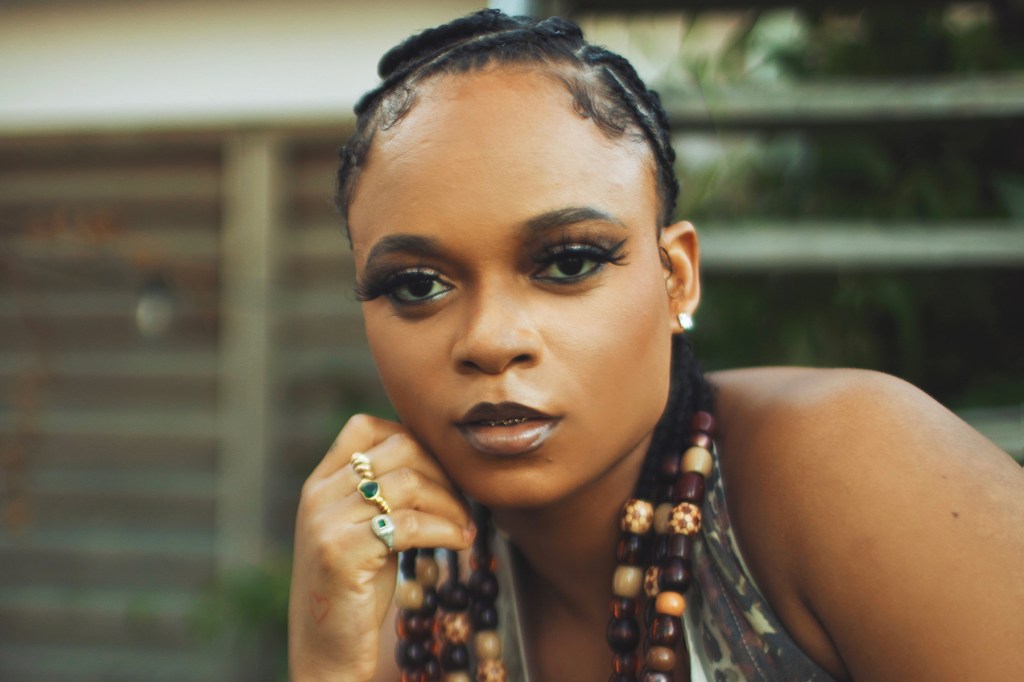
Trending on Billboard As Jamaica picks up the pieces in the aftermath of Hurricane Melissa’s historic devastation, the global reach of their artists remains cause for celebration. On Friday (Nov. 7), the Recording Academy revealed the five nominees for best reggae album at the 2026 Grammy Awards — and Jamaican musicians snagged every single spot. […]
Trending on Billboard
Not much rocked the Caribbean in October like Hurricane Melissa.
The historic storm made landfall in Jamaica (Oct. 28) and Cuba (Oct. 29), wrecked parts of Haiti, and caused heavy rain that resulted in fatal flooding across New York City. With a death toll of 75, as of Tuesday (Nov. 4), the devastation of Hurricane Melissa has spurred immediate action and support from some of Jamrock’s biggest stars. Shenseea, Beenie Man, Sean Paul and Spice have all documented their respective relief efforts via their respective social media channels, and, on Monday, Shaggy spoke with Billboard about what he saw on the ground in the immediate aftermath of the storm.
“We got [to Jamaica] early enough to reach the people, because it took me around six hours to get from Kingston to St. Elizabeth in Black River, which is normally a two-and-a-half-hour drive at most,” the reggae icon told Billboard. “We had to chop [tree] limbs down, move things out the way, and drive through high puddles of [runoff], so we got there in the middle of the night. At that point, all we could do was pass water out, so we had to regroup and drive six hours back to Kingston. The next day, we went to the Junction side of St. Elizabeth, which took us four hours. The square itself was shut down. It was ground zero because it wasn’t livable anymore. Nobody could stay there.”
In addition to Shaggy’s efforts alongside the Global Empowerment Mission, verified aid channels include World Food Programme, Project HOPE, GiveDirectly, American Friends of Jamaica, Food for the Poor and Friends of Caritas Cuba.
In lighter news, Trinidadian soca star Mical Teja made headlines after he shared a picture with his locs cut off, A$AP Rocky once again stoked marriage rumors by referring to himself as Rihanna’s “loving husband,” and Chronixx returned with Exile, his first new album in eight years.
Naturally, Billboard’s monthly Reggae/Dancehall Fresh Picks column will not cover every last track, but our Spotify playlist — which is linked below — will expand on the 10 highlighted songs. So, without any further ado:
Trilla-G & V’ghn, “Take Me as I Am”
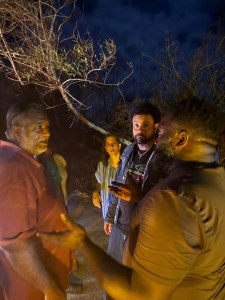
Trending on Billboard
“I’m on an adrenaline run at this point,” Grammy-winning reggae icon Shaggy tells Billboard less than a week after Hurricane Melissa made landfall on his home country of Jamaica. “I was around when [Hurricane] Gilbert happened, which [was] a Category 3… when I heard [Hurricane Melissa] was a Category 5, I [couldn’t] imagine what this would be.”
Last week (Oct. 28), nearly 40 years after Gilbert, Hurricane Melissa became the strongest storm to strike Jamaica in the island’s history. In the following days, the storm also made landfall in Cuba (Oct. 29), devastated parts of Haiti, and brought residual rainfall and intense winds to the rest of the Caribbean — and, later, to the Northeastern coast of the United States. According to The New York Times, the death toll in Jamaica from Hurricane Melissa is now a devastating 28 — and that’s with dozens of communities still awaiting aid, as local authorities and humanitarian workers continue clearing debris.
Shaggy, who topped the Billboard Hot 100 twice in 2001 with the reggae crossover classics “It Wasn’t Me” and “Angel,” was one of the first homegrown superstars to spring into action and spearhead relief efforts, alongside Beenie Man, Spice and Sean Paul. Once the airports opened on Thursday (Oct. 30), Shaggy mobilized a network of on-the-ground partners, including humanitarian NGOs and private donors, to coordinate and fund flights carrying food, water, medical aid and household essentials to Jamaica’s most impacted areas.
“We got [to Jamaica] early enough to reach the people, because it took me around six hours to get from Kingston to St. Elizabeth in Black River, which is normally a two-and-a-half-hour drive at most,” Shaggy tells Billboard. “We had to chop [tree] limbs down, move things out the way, and drive through high puddles of [runoff], so we got there in the middle of the night. At that point, all we could do was pass water out, so we had to regroup and drive six hours back to Kingston. The next day, we went to the Junction side of St. Elizabeth, which took us four hours. The square itself was shut down. It was ground zero because it wasn’t livable anymore. Nobody could stay there.”
According to Reuters, Hurricane Melissa left nearly half a million Jamaicans without power and destroyed critical water systems and supply lines. With the island’s southwestern parishes, specifically St. Elizabeth and Westmoreland, remaining difficult to access due to flooding, landslides and debris, thousands of Jamaicans remain housed in emergency shelters, which presents an entirely different set of challenges, such as overcrowding. Whether they’re braving shelters or making their way to the eastern side of the island, families across Jamaica are still reeling from Hurricane Melissa.
Shaggy helps with post-hurricane relief efforts in Jamaica on November 1, 2025.
JAY WILL
“The devastation and shock are real,” Shaggy notes. “For some of these kids, therapy is going to be [very important]. It’s not just food and clothes and shelter.
“You’re never really prepared for something like this; It’s the biggest [hurricane] on record,” he continues. “[The government is] doing their best to see what they can do to get in there. Large trucks are going to have a hard time going through the debris, so you’re going to need the military and urban development to clear up the roads so that supplies can come in, and that might take a couple of days. Smaller vehicles have the advantage of getting in there, so we’ve been doing that so that people are not starving until the big aid comes.”
In addition to delivering everything from roofing supplies and Pampers to “flashlights, batteries, everything that you can think of putting on a list,” Shaggy has also teamed with Global Empowerment Mission (GEM), which has been on the ground on the island since Hurricane Beryl in 2024. “Food for the Poor, of course, also has a major headquarters in Jamaica,” Shaggy adds. “I’ve done lots of work with them. Sean [Paul] is working with them closely right now, so I decided to work with GEM to spread it all around. There’s also the government site, www.supportjamaica.gov.jm.”
Jamaica is home to some of the music industry’s biggest and most iconic voices — from Shaggy himself and reggae iconoclasts like Bob Marley and Peter Tosh to dancehall superstars like Vybz Kartel and Shenseea. At the top of this year, Kartel made his Billboard cover debut with a whirlwind “24 hours in Kingston” interview ahead of his historic Freedom Street concert. This spring, Billboard also reported that, in under a year. New York’s UBS Arena hosted five $1 million-grossing Caribbean-headlined shows across four different genres. In days immediately following the storm, AccuWeather experts estimated up to $52 billion in damages and economic loss from Hurricane Melissa across the Caribbean.
“I don’t think anybody’s in any festive mood at this point,” Shaggy says of the future of Jamaica’s music and live entertainment industries post-Hurricane Melissa. “Jamaica is a land that doesn’t have any shortage of talent or artists or culture; it’s easier to get aid from people because of our cultural status. But we’re still not getting enough coverage. The minute you’re not in the press is when the aid goes, unfortunately. Keeping up awareness in the press is something that we need to do.”
Additional verified aid channels include World Food Programme, Project HOPE, GiveDirectly, American Friends of Jamaica, and Friends of Caritas Cuba. Click here to see how more celebrities have been reacting to Hurricane Melissa.

Trending on Billboard
In the wake of Hurricane Melissa, a devastating Category 5 hurricane that made landfall in Jamaica (Oct. 28) and Cuba (Oct. 29) earlier this week, several musicians have offered words of support and shared resources to help rebuilding efforts.
The storm made landfall in New Hope, Westmoreland, Jamaica on Tuesday, marking the strongest storm in the island’s history. Hurricane Melissa surpassed 1988’s low-end Category 4 Hurricane Gilbert as the strongest such storm to hit the island. On Wednesday, the hurricane hit Cuba’s southeastern province of Santiago de Cuba. Hurricane Melissa has since continued its journey across the North Atlantic Ocean, bringing copious rain and intense wind to the Northeastern United States. On Thursday (Oct. 30), The New York Times reported over 20 deaths in Haiti, five in Jamaica and one in the Dominican Republic.
On Thursday, dancehall queen Spice shared a photoset chronicling the wreckage on her official Instagram page. “Together we gonna build back stronger,” she wrote in a caption highlighting her Grace Hamilton Foundation. “Even if it’s as small as [manpower] to help us for even a day, please reach out and let’s build together as a team!” Her frequent collaborator, King of Dancehall Vybz Kartel, also took to Instagram, reminding his followers, “This is not about politics, it’s about Jamaica. So, help if you can, and pray if you can’t, but keep your politics to yourself.”
Missy Elliott, who collaborated with Kartel on 2005’s “Bad Man,” wrote, “Prayers up for everyone in Jamaica,” on X, followed by several Jamaican flag and prayer hands emojis. When reminded to also pray for those in need in Cuba and Haiti, Eliott responded, “Absolutely.”
More of the island’s biggest stars sprang into action to assist aid efforts. Dancehall icon Beenie Man assembled a team to deliver supplies to hospitals in St. Elizabeth; “Bruk Off Yuh Back” singer Konshens shared an informative video directing social media users to government-approved aid channels, and Shaggy posted infographics explaining the collection process for those donating supplies from the Kingston area. Last week, shortly after the release of his long-awaited Exile LP, Grammy-nominated reggae star Chronixx dedicated an acoustic rendition of the aptly titled “Hurricane” to his beloved home country. “Stand firm, Jamaica,” he captioned the video.
According to Rolling Stone, the Catherine Hall Sports Complex, a Jamaican stadium that hosts the annual Reggae Sumfest music festival, is in the midst of rebuilding after being completely submerged in water. In addition, the Jamrock Reggae Cruise, an annual ship-set festival co-founded by Damian Marley, had to be rerouted to Cozumel, Mexico. Notably, all of the Marley properties in Jamaica, particularly the Bob Marley Museum, have been temporarily repurposed as relief centers for those in need of aid, food, and supplies.
Silent Addy, one of the producers of “Shake It to the Max,” the year’s biggest crossover dancehall hit, processed his emotions in an Instagram Story. “Finally heading home and really taking in everything Hurricane Melissa did to Jamaica,” he wrote. “It’s been hard to even pause and process… just ready to be home with my family and rebuild.”
Meek Mill also sent “prayers to Jamaica” via X, while RiotUSA, Ice Spice’s go-to producer, revealed that he was actually on the island when Hurricane Melissa hit. “I’m alive. I’m safe! [Fighting] to get off the island,” he wrote. “This is the most traumatic experience ever.”
Sevana, who starred in 2024’s Bob Marley: One Love film, lamented, “My beloved country. God know.” Grammy-nominated dancehall-pop star Shenseea expressed similar sentiments, writing “Praying for everyone on my island right now… We’re strong people and we’ll get through this together,” in a now-expired Instagram Story. On X, Armanii, who recently performed at Billboard’s R&B/Hip-Hop Live concert, wrote, “And once Jamaicans come together we are unstoppable! We will rebuild 10 times stronger, prayers up!”
As Jamaica, Cuba and several other Caribbean nations begin to pick up the pieces, residents across the islands have highlighted World Food Programme, Project HOPE, GiveDirectly, American Friends of Jamaica, Friends of Caritas Cuba, and the Jamaican government’s official hurricane relief portal as verified channels of support.

 State Champ Radio
State Champ Radio 
